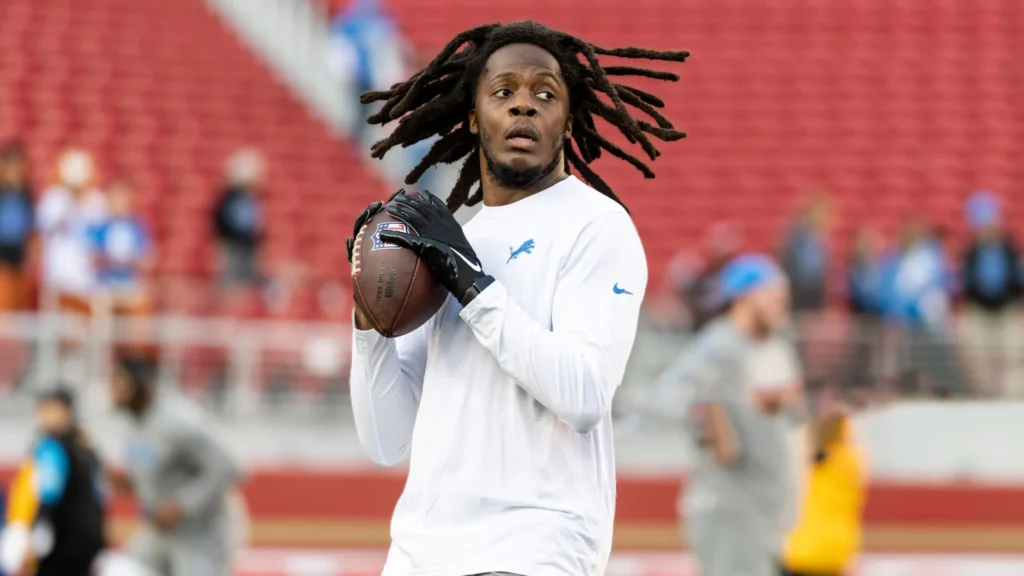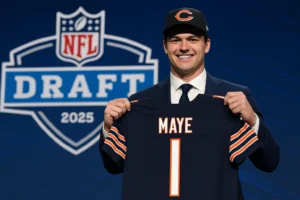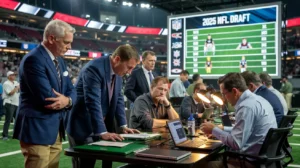
The Unfolding Saga: Teddy Bridgewater’s Suspension Ignites Debate on High School Sports Ethics
The world of high school football in Florida has been rocked by the recent suspension of Miami Northwestern High School head coach, and former NFL star, Teddy Bridgewater. The decision, handed down by Miami Northwestern, stems from allegations of “impermissible benefits” provided by Bridgewater to his players – a revelation that has sparked a passionate debate across the state and beyond, raising critical questions about the intersection of compassion, high school athletic regulations, and the stark realities faced by many student-athletes.
Bridgewater, a revered figure in Miami, especially within the Liberty City community where Northwestern is located, has always been vocal about his dedication to the youth. His return to his alma mater to coach the Bulls was met with widespread enthusiasm, culminating in a state championship in his inaugural 2024 season. However, this triumphant narrative has taken an unexpected turn.
The core of the issue lies in Bridgewater’s self-professed financial contributions to his team. In a candid Facebook post, the former Pro Bowl quarterback detailed how he personally covered various expenses for his players throughout the 2024 season. These included weekly Uber rides to ensure attendance at practices and games, pre-game meals, and even crucial recovery services like massages and rehab vans. He appealed to the public for donations to continue this vital support for the upcoming 2025 season, disclosing that he had spent thousands of dollars weekly from his own pocket to provide these necessities.
While Bridgewater’s intentions were undeniably rooted in benevolence – aiming to level the playing field for student-athletes from economically disadvantaged backgrounds – these actions, according to the Florida High School Athletic Association (FHSAA), constitute “impermissible benefits.” The FHSAA maintains stringent rules designed to prevent unfair recruiting advantages and uphold the amateur status of high school athletes. Any direct financial support or provision of services by coaches to individual players, or even the team outside of officially sanctioned and transparent booster club channels, can fall under this umbrella.
The FHSAA’s stance, while aimed at maintaining competitive balance and preventing abuses, often clashes with the on-the-ground challenges faced by programs in under-resourced communities. For many student-athletes at Miami Northwestern, a ride to practice or a nutritious pre-game meal isn’t a luxury; it’s a fundamental need that can determine their ability to participate in sports, let alone excel. Booster clubs typically fill these gaps, but not all schools, particularly those in less affluent areas, have the robust financial backing to adequately support all team needs.
The public reaction to Bridgewater’s suspension has been swift and overwhelmingly supportive of the coach. Social media has been ablaze with comments condemning the FHSAA rules as “tone-deaf” and “ridiculous,” arguing that the association is punishing a good man for doing good deeds. Many current and former players have shared testimonials, highlighting the critical role Bridgewater’s support played in their ability to participate and thrive. The sentiment is clear: in a system where funding disparities exist, coaches often step in to bridge the gap, and penalizing such actions can ultimately harm the very students these rules are meant to protect.
While the exact duration and further implications of Bridgewater’s suspension remain under FHSAA investigation, the former NFL star has made his intentions unequivocally clear: he’s not abandoning Miami Northwestern. He publicly stated his commitment to the team, even if it means “volunteering from the bleachers” – a testament to his deep-rooted connection to his alma mater and the young athletes he inspires.
This incident at Miami Northwestern with Teddy Bridgewater serves as a microcosm of a larger debate in high school athletics across the nation. It forces a critical examination of antiquated rules in a modern landscape, where the financial realities for many student-athletes and athletic programs are often overlooked. As the story continues to unfold, it will undoubtedly fuel further discussions on how athletic associations can adapt their regulations to better serve the well-being of student-athletes, fostering an environment where both fair play and genuine support can coexist. The future of high school football, and the role of compassionate coaches like Teddy Bridgewater, hangs in the balance as this pivotal case sets a precedent for how such conflicts will be resolved moving forward.

